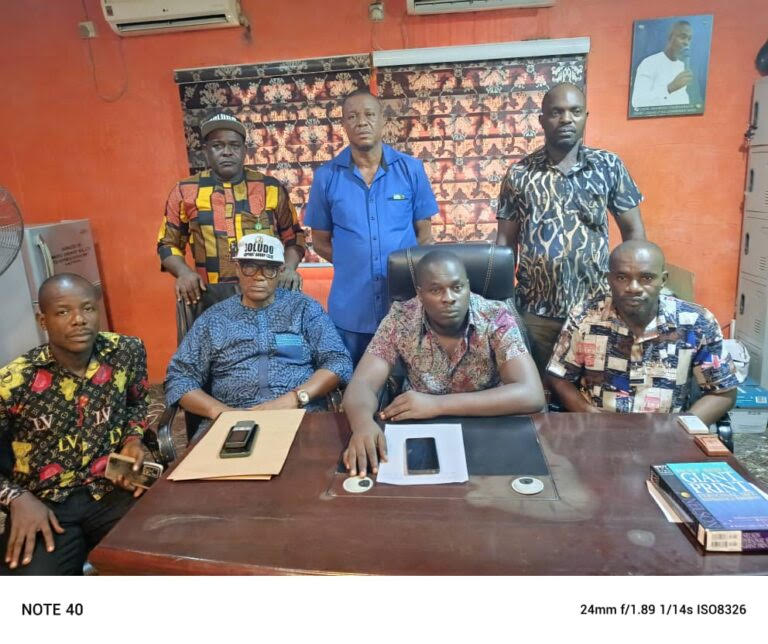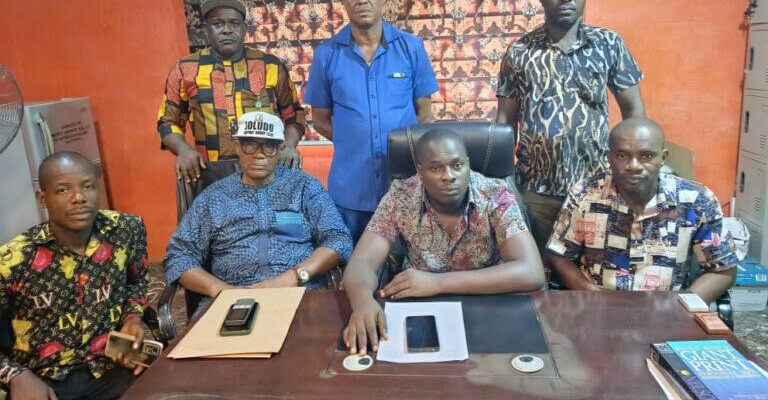
The leadership of Ogbo-Ogwu Bridgehead Drug Market in Onitsha has distanced itself from a recent protest staged by some traders over the continued closure of their shops by the National Agency for Food and Drug Administration and Control (NAFDAC).
Earlier this week, a group of aggrieved traders, under the name Concerned and Genuine Members of Ogbo-Ogwu Drug Market, took to the streets to protest what they described as an unfair and prolonged shutdown of their businesses. The protesters, carrying placards with various inscriptions, marched around the market, lamenting the hardship caused by the closure. They alleged that the situation had resulted in the deaths of no fewer than five traders and the hospitalization of several others due to stress, hunger, and depression. The traders also claimed that NAFDAC was demanding N2 million from each affected trader before their shops could be reopened, an allegation that has sparked controversy.
The closure of the market followed a month-long enforcement operation by NAFDAC, aimed at removing counterfeit, unregistered, and banned drugs from circulation. The agency had carried out similar crackdowns in other major drug markets across the country, including Lagos and Aba.
In response to the protest, the market’s caretaker chairman, Ndubuisi Chukwuleta, alongside other executive members, addressed journalists at the market on Thursday, firmly disassociating the leadership from the demonstration. He insisted that those who participated were not legitimate members of the Ogbo-Ogwu Drug Market and alleged that they were being sponsored by an unidentified group attempting to derail efforts to resolve the issue.
Chukwuleta emphasized that the market leadership fully supports NAFDAC’s actions, describing them as necessary for sanitizing the market and eliminating the circulation of fake and substandard drugs. He urged the public, the Anambra State Government, and the Federal Government to disregard the protest, stating that the leadership remains committed to working with NAFDAC to ensure compliance with regulatory standards.
He also provided an update on the ongoing efforts to reopen the market, clarifying that NAFDAC had announced plans to lift the closure. However, many shops remain locked because affected traders must undergo a verification process before resuming business. The profiling exercise, currently being conducted in Onitsha, is a critical step in ensuring that only traders who comply with regulatory standards are allowed to operate. Chukwuleta disclosed that even his own shop remains closed as he completes his profiling process, reaffirming that the exercise is being applied fairly to all traders.
Reacting to the claims that traders were being asked to pay N2 million before reopening, Chukwuleta dismissed the allegations as false and misleading. He explained that while NAFDAC imposes fines for regulatory infractions, these penalties are based on specific violations, such as the sale of unregistered, banned, or counterfeit drugs. He reiterated that the enforcement operation was not unique to Ogbo-Ogwu, as similar actions had been carried out in other parts of the country, with affected traders complying with NAFDAC’s stipulations.
Meanwhile, NAFDAC’s South-East Zonal Director, Martins Iluyomade, also refuted the allegations of extortion. He emphasized that the agency’s enforcement exercise, conducted between February 10 and March 5, was in line with legal provisions guiding NAFDAC’s operations. He confirmed that all confiscated drugs lacked NAFDAC approval, reinforcing the agency’s commitment to ensuring that only safe and authorized pharmaceuticals are sold in Nigerian markets.
Iluyomade assured that NAFDAC remains dedicated to protecting public health by eliminating counterfeit drugs and maintaining strict oversight of pharmaceutical markets. He urged traders to cooperate with the ongoing verification process to facilitate the gradual reopening of the market.
As the situation unfolds, traders who comply with NAFDAC’s guidelines will be allowed to resume operations, while authorities continue their efforts to prevent the re-emergence of counterfeit drugs in the market.

Comments